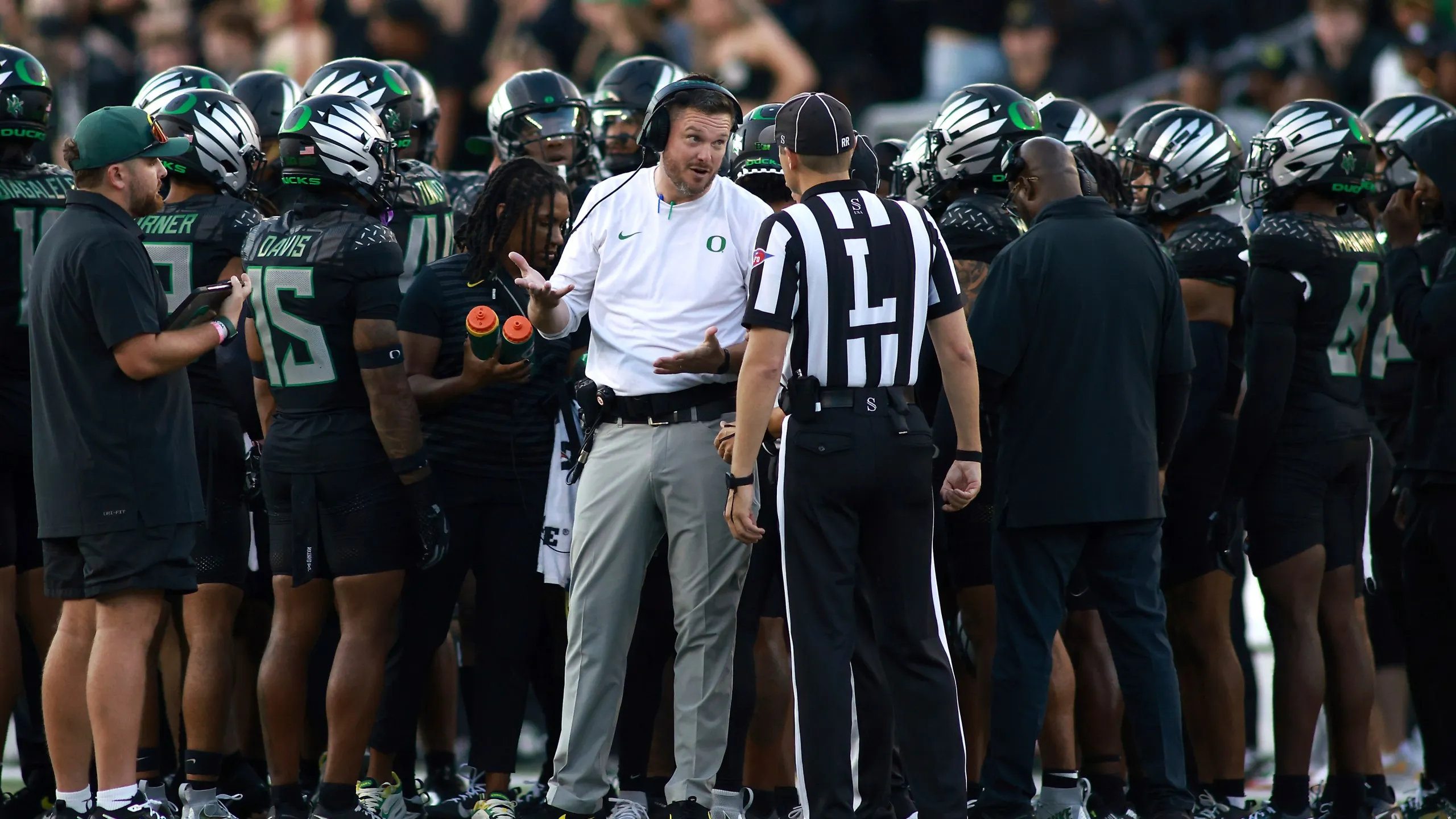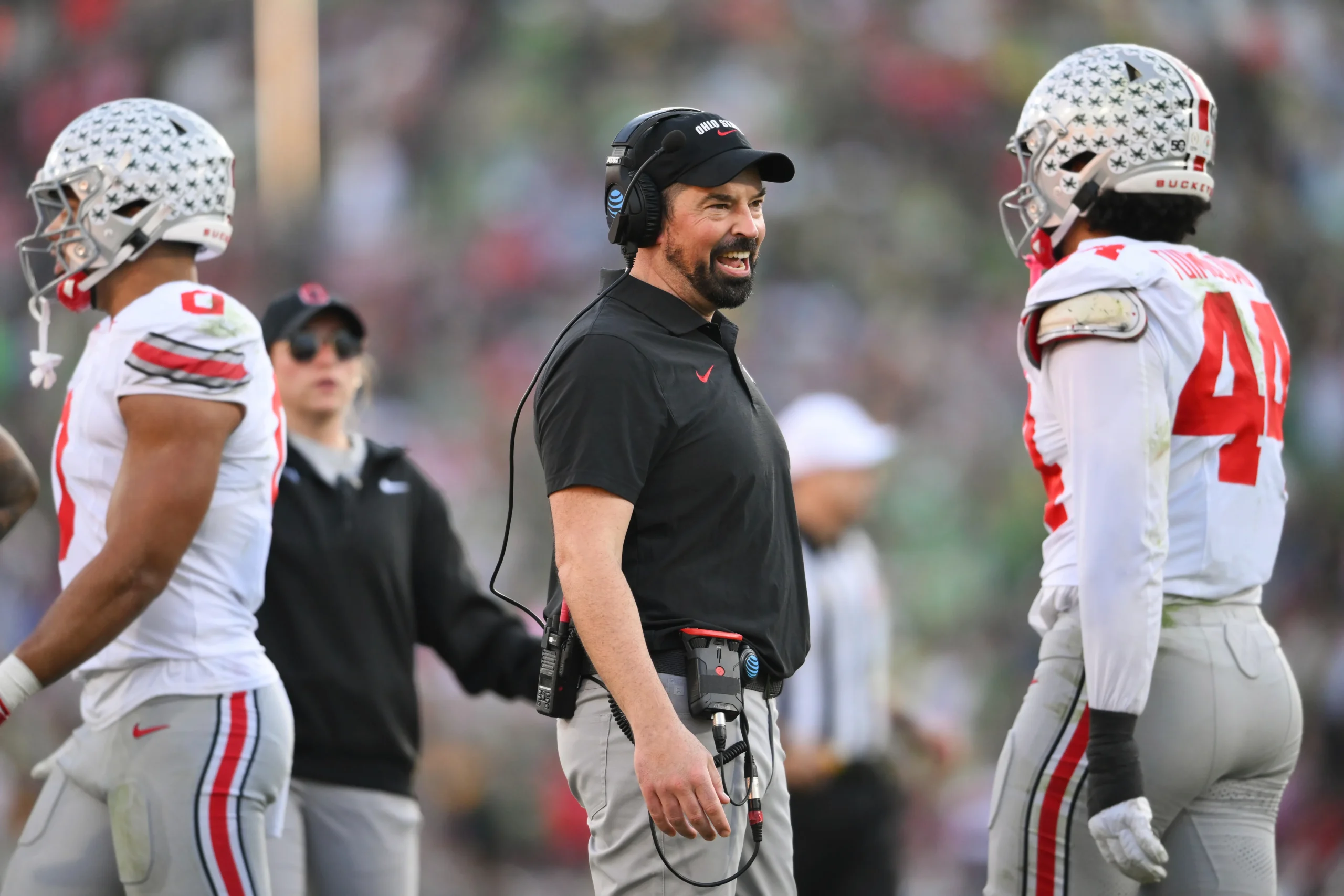It was supposed to be a landmark year for the College Football Playoff (CFP) with the expansion to a 12-team format, heralding new opportunities and heightened excitement for fans and teams alike. Yet, the reality has been starkly different, highlighted by the Oregon Ducks’ crushing defeat at the hands of the Ohio State Buckeyes during the quarterfinals at the Rose Bowl on New Year’s Day, 2025.
Oregon, led by head coach Dan Lanning, entered the game with an undefeated record and a No. 1 ranking, only to falter in a match that many had eagerly anticipated. Post-game, Lanning remarked, “We didn’t take advantage of our opportunity.” His comments, though restrained, underscored a broader dissatisfaction with the current playoff system—a sentiment that is gaining traction amongst fans and analysts alike.

The Playoff Conundrum: Is More Actually Less?
The CFP’s new system, despite its intentions to democratize the playoff process by allowing more teams to compete, seems to have stumbled out of the gate. The first seven games were largely one-sided affairs, with outcomes decided by wide margins. Most notably, teams like Oregon, which had performed exceptionally during the regular season, found themselves at a disadvantage, having to contend with long layoffs and tougher preparation schedules than some lower-seeded teams.
Bill Oram, a seasoned sports columnist for The Oregonian, pointed out the inherent flaws in the system, noting, “Nobody would have designed it this way.” His critique is sharp, especially in light of the defeats suffered by three of the four teams that received first-round byes. This oddity raises questions about the effectiveness and fairness of the seeding and bye allocation process.

A System Set for Scrutiny
As Oregon’s regular season success turned into postseason disappointment, the broader implications for the CFP became clear. The system, ostensibly retooled to foster more competition and excitement, instead seemed to penalize high-performing teams while paradoxically rewarding those with spottier records. “This year it’s an Oregon problem. But next year it could be an Alabama or Texas or Michigan problem,” Oram observed, suggesting that the issues faced by Oregon are not isolated but indicative of potential systemic failures.
Rethinking the Playoff Structure
The dissatisfaction with the current CFP arrangement has spurred calls for significant changes. Oram advocates for the elimination of automatic byes for the highest-ranked conference champions, proposing a more equitable system where the CFP rankings are followed more rigorously. Additionally, he suggests leveraging home games through at least the quarterfinals, thus giving top teams the advantages they earned during the regular season.
While these adjustments might disrupt the traditional bowl system, they could lead to a more balanced and competitive postseason, better reflecting the achievements of teams throughout the year. Such changes, though potentially contentious, are seen by many as necessary steps to preserve the integrity and excitement of college football’s climax.

As the dust settles on this year’s playoff controversies, the conversation is bound to intensify. The CFP has a critical role in ensuring that future tournaments honor the effort and excellence of the season’s best teams. For now, Oregon’s setback serves as a potent reminder of the ongoing challenges and the urgent need for thoughtful reform in college football’s premier competition. As fans and teams look ahead, the hope remains that the CFP can evolve into a system that truly celebrates the sport’s competitive spirit.

I am a writer with a passion for technology and gaming. I write about a variety of subjects, including Esports, Games, Shows, and Sports. I create engaging and informative content for Hiptoro.

